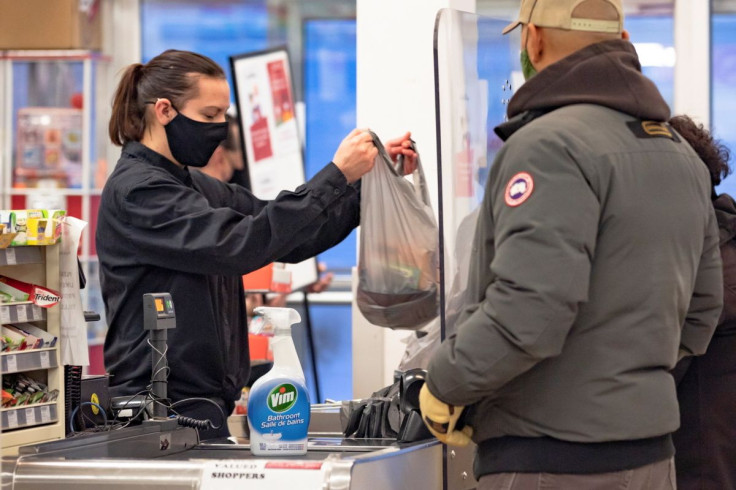Canada Inflation Surges To Fresh 30-year High

Canada's annual inflation rate accelerated in February to hit a fresh 30-year high, with broad price gains hitting consumers at the gas pumps, in the grocery store and on housing, official data showed on Wednesday.
At 5.7%, the gain beat analysts' estimates of a rise of 5.5% and is the highest since August 1991, when the inflation rate hit 6.0%, Statistics Canada said. It was the 11th consecutive month above the Bank of Canada's 1% to 3% control range.
"Price increases were broad-based in February, pinching the pocketbooks of Canadians," Statscan said in a statement.
Gasoline prices jumped 32.3% compared with February 2021, while grocery prices were up 7.4% and shelter costs jumped 6.6%.
Prices rose in six of eight major component baskets, with all three core measures of inflation rising.
"This is certainly not just the food and energy story. ... We're seeing these gains sweeping through the core as well," said Doug Porter, chief economist at BMO Capital Markets.
The CPI common measure, which the Bank of Canada says is the best gauge of the economy's underperformance, rose to 2.6% from 2.3% in January.
The central bank hiked its policy rate for the first time in more than three years earlier this month, and Governor Tiff Macklem said it was prepared to act aggressively if needed to keep inflation expectations grounded.
Red-hot inflation could force that action, said economists.
"It adds to the case for having a bit of a bigger rate hike at the next meeting and shutting down the (bond) purchase program, as they've already guided," said Derek Holt, vice president of capital market economics at Scotiabank.
"I think they have to hit the policy rate harder given how far behind they are on the inflation mandate," he added.
The Canadian dollar extended gains and touched 1.2689 to the U.S. dollar after the data was released, or 78.81 U.S. cents.
© Copyright Thomson Reuters 2024. All rights reserved.




















